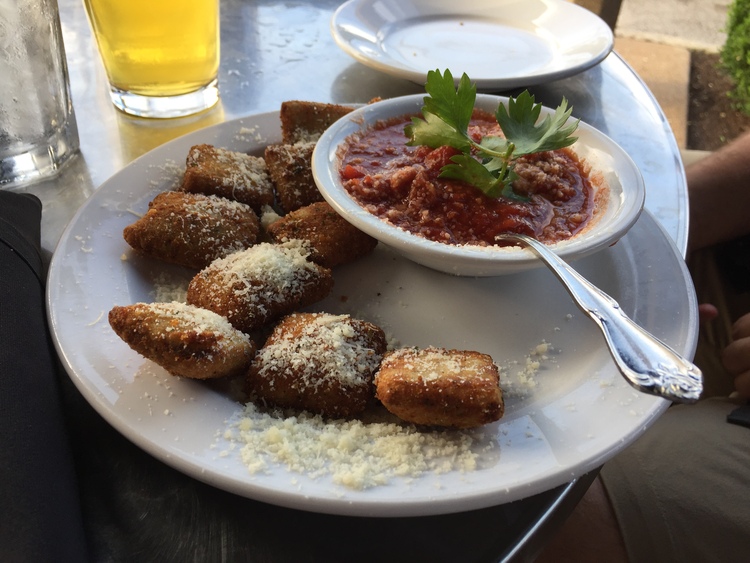
We love going out to eat, anything from toasted ravioli to authentic KC barbecue, but we don’t anticipate getting hurt at our restaurant of choice. You may slip and fall, get sick from the food, or even be hurt by another person. Do you have rights? Who will pay your medical bills?
In Missouri, restaurant guests have the right to file a lawsuit against the establishment where they sustained harm, not just the person who harmed them. However, businesses have legal protections, too, as do the employees working for the restaurant. An experienced Independence, Missouri personal injury lawyer can sort through the complicated legal issues accompanying a lawsuit against a restaurant.

The seven most common types of injuries at restaurants
- Slip-and-fall injuries
- Causes: Spilled drinks, wet floors, uneven surfaces, or poor lighting.
- Burns and scalds
- Causes: Hot food, beverages, or accidental contact with heated surfaces.
- Food poisoning and allergic reactions
- Causes: Improper food handling, cross-contamination, or failure to disclose allergens.
- Cuts and lacerations
- Causes: Sharp utensils, broken glass, or malfunctioning kitchen equipment.
- Falling object injuries
- Causes: Overloaded shelves, unsecured décor, or improperly stored kitchen equipment.
- Burns from chemical exposure
- Causes: Cleaning chemicals left in food prep areas or improper handling of cleaning solutions.
- Vehicle crashes into restaurants
- Causes: Driver negligence (speeding, distracted driving, DUI), parking lot mishaps, or poor restaurant design (lack of barriers).
How restaurants can be liable for injuries due to negligence
Restaurant owners have a duty of care for the safety of their patrons. This includes ensuring that their premises are safe for guests and enacting reasonable security measures, including cameras, properly-trained management, or security guards.
Failure of the duty of care for a patron’s safety can take many forms, like:
- Not cleaning spills promptly, causing someone to slip and fall
- Failure to have adequate lighting, either in the parking lot, the establishment, or both
- Lack of proper food sanitation and handling, causing someone to become ill
Restaurant owners can also be held liable for foreseeable criminal acts or acts of violence that can harm customers. For example, if the restaurant is in a crime-prone location or if there have been prior violent acts, like an assault in the parking lot or an armed robbery, the restaurant owner should reasonably predict that there is a higher chance of future bad acts and, therefore, take appropriate steps to protect employees and customers. Failure to do so could expose the restaurant to liability.
| Check out these recent news stories about injures at Missouri restaurants: |
How your lawyer proves liability for customer harm in a restaurant
To successfully secure compensation for harm suffered in a restaurant, you must prove that the restaurant was negligent. Each of the following elements of negligence must be established to successfully prove your claim:
- The restaurant’s duty of care arises from the fact that it invited you onto the premises to dine
- It breached this duty of care by failing to take proper steps to ensure your safety, either by failing to provide adequate security, having poor food preparation standards, or by permitting hazards on the property to persist
- The restaurant’s breach of its duty of care for your safety directly led to your injury; we draw a clear link between your injuries and the restaurant’s actions (or inaction)
- You suffered clear harm and damages, like medical bills, pain and suffering, or property damage
If all four elements of negligence are present in your situation, then you have solid grounds to demand fair compensation for your losses.
Building your premises liability claim
Each of the four elements of negligence requires evidentiary support. First, we establish that the restaurant owed you the duty of care for your safety by proving that you were a customer. Then, we gather evidence demonstrating that the restaurant failed to take reasonable care for your safety. This can include:
- Witness accounts, including employee testimony
- Information contained in the establishment’s safety or maintenance records
- Police reports of past criminal or violent acts on the premises
- Video footage of the accident
- Your medical records
Your lawyer will use this evidence to build a case against the restaurant and demand fair compensation for your losses.
Injured at a restaurant? We can help.
If you believe you have a premises liability claim against an Independence restaurant, contact Langdon & Emison at (866) 931-2115 for a free consultation.

